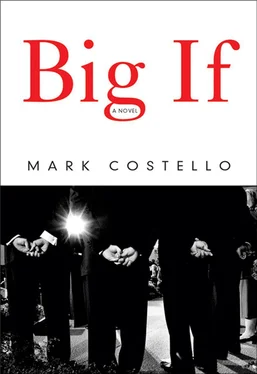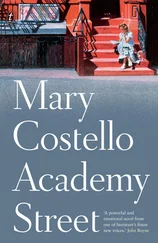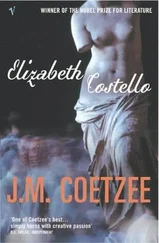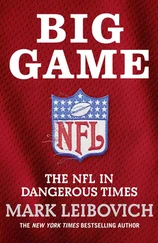
Center Effing is a town between the ocean and I-95,on the old and settled seaboard of New Hampshire. To the north is salt marsh. To the south is salt marsh, four square miles of state forest, and the town of Rye. It has a bit of money now, high tech and retirees, condos on the beaches and a new downtown. It was different twenty years ago when Vi Asplund was growing up. In those days, Center Effing was a town of lobstermen, dads commuting into Portsmouth, and, of course, the Air Force out of Pease.
The house where Vi grew up was your basic saltbox, New Hampshire’s answer to the ranch. The house was on a quarter acre down Santasket Road, three bedrooms on the second floor, an attic and a basement and a small attached garage, with views of nothing special — on one side, Captain Cooper’s house (saltbox, painted gray); on the other, Major Buckert’s (saltbox, painted gray and briefly a bright orange just before the Buckerts filed for divorce). These men — Cooper, Buckert — were SAC pilots based at Pease, nine miles up the interstate. The bomber dads were gone six months of the year, deployed to forward-ready status in Thule, Greenland, and when they were away, their families always went a little crazy on the street. The older kids set fires, the younger kids went naked, the mothers took lovers (other bomber pilots, waiting to deploy). The lovers came and went in the hours before dawn and the Asplunds had a view of this as well, the craziness, the lovers, and the kids.
The front windows of the Asplunds’ house overlooked a rather ordinary lawn, twin Rose of Sharon bushes and a boxwood hedge, and past Santasket Road to the wavy pampas of the intertidal marsh. Behind the house was a patio and yard, a swing set and a garden where Vi’s mother, Evelyn, a sun-brown housewife, grew very tricky roses, obscure Chinese vines, and Dutch Blaster tulips, which were time-intensive and pest-prone but famous for the power of their blooms.
When Vi was six and her brother, Jens, was ten, Evelyn started forcing tulips in the den. The den was in the northwest corner of the house and sunny over the middle saddle of the day, which made it the perfect place to force a tulip bulb. She started in late winter, when the marsh was toast to the horizon, and the bomber wing was off to Greenland on a friendly weather mission, and Mrs. Buckert got up one night and started painting her house orange, and Mrs. Cooper was working on her French with the help of Major Wade, and the Coopers’ oldest kid was picked up by the cops and sent to military school, and the other Cooper kids discovered streaking (which came late to New Hampshire), and the youngest Cooper girl ran away from home and got as far as Colonel Krutland’s house around the bend.
Jimmy Carter was in power and Evelyn was in the Center Effing public library. She let Vi pick a book. No, two books. No, one book and a tape, and not that damn We Sing business either, Vi, gives your mom a splitting migraine. Vi picked her book and tape as Evelyn in snowboots looked up tulip horticulture in the card catalogs. They stopped at Monsey’s Luncheonette on the rotary downtown, then at Aulette’s Greenhouse down the road, where Evelyn bought three knee-high terra-cotta vases tapered to the top like antiaircraft shells, which Aulette recommended for the serious forcer. Tulip forcing, Vi later figured out, was a matter of taking the ugly, sometimes even hairy bulbs, which looked like giant bunions, something you might pay a guy to razor off your foot, and freezing them or chilling them to simulate the winter, then putting them in shells with dirt and other substances, covering the shells and leaving them in a sunny corner of the den. The bulbs, bamboozled by the dark and heat, would think that it was spring and crack into a shoot. The shells stayed in the den until the marshes came alive and Mrs. Buckert packed her kids into the station wagon and went back to Indiana, leaving her husband for not being there.
Vi’s father, Walter Asplund, groused about the shells, the garden’s sly invasion of the den. The den, he said, was his after-supper sanctum, the place he went to end his day with a glass of Pabst, a pipe of Borkum Riff, and a stack of old insurance journals. Walter Asplund was a claims adjuster for the Connecticut Casualty Corporation of Connecticut, which meant that he investigated losses under policies, measuring the damage, negotiating pay-outs according to a chart devised in Hartford, this much for a hand, this much for a toe, this much for one-quarter loss of vision in one eye. He was solid seacoast burgher, a complicated man, a cheap-skate and a brooder and a reader of the sort of books most people only read in college (Mill, Locke, Thucydides, Moll Flanders ), a man who laughed at jokes but rarely told them, who got his hair cut on the same day every month, who shoveled his own driveway, ironed his own shirts. He dabbled in town politics as a Lodge Republican, chaired the C.E. bloodmobile, and was elected chairman of the Rotary, an honor he declined on the grounds that the national Rotarians required every chair to swear an oath on the Christian scripture, which Vi’s father, in good conscience, couldn’t do. Walter Asplund believed in many things, the dignity of humankind, the Genius of Democracy, the sanctity of contract, The Origin of Species , the mission of the bloodmobile, the charts devised in Hartford, poplin suits in summertime, brown bread with baked beans, little oyster crackers (with chowder, not with oysters), baseball, tennis, The New Yorker , travel hats he purchased from the back of The New Yorker (which he sometimes wore to baseball games), the pleasures of night skiing with his children on the bunny hill in Rye. He believed, that is, in almost everything but God. He declined to serve the Rotary, and announced the reason why, and after that he was known in Center Effing as the Atheist and his kids were known in school as the Little Atheists.
People said that atheism was a funny line of thinking for a moderate Republican insurance man. Walter said that people were confusing insurance with assurance when, in fact, the two were opposites. If you had assurance, you wouldn’t need insurance, and if it was God’s plan that your car should be rear-ended in the parking lot at Monsey’s, who were you to defray His will through a no-fault auto policy? Did Sodom have homeowner’s? Did Mary collect on the death of her son?
Small towns in New England will tolerate the crank, the village irritant, but Vi’s father really pushed it. He wouldn’t swear an oath or let his children pledge allegiance to the flag. He sat up in the den when his family was asleep, writing on his money, striking out the GOD from IN GOD WE TRUST, lest anybody think that by paying with the slogan he was buying into it, which got him kicked off the bloodmobile and defeated in a landslide for town meeting. People hated standing in the checkout line at the supermarket, opening their wallets and finding a stray five bearing Walter's personal graffiti, IN  WE TRUST. The scribble forced them to imagine the chain of small transactions which had put his money in their clothes: Walter pays Mrs. Souza, his kids’ piano teacher, giving her the five; Mrs. Souza buys a quart of sherry at Townline Liquorama, paying with the five; someone else buys a case of ’Gansett and gets the bill as change, spending it on pens and gum at Rexall’s; the girl at Rexall’s gives the bill as change to someone buying God (or
WE TRUST. The scribble forced them to imagine the chain of small transactions which had put his money in their clothes: Walter pays Mrs. Souza, his kids’ piano teacher, giving her the five; Mrs. Souza buys a quart of sherry at Townline Liquorama, paying with the five; someone else buys a case of ’Gansett and gets the bill as change, spending it on pens and gum at Rexall’s; the girl at Rexall’s gives the bill as change to someone buying God (or 
Читать дальше


 WE TRUST. The scribble forced them to imagine the chain of small transactions which had put his money in their clothes: Walter pays Mrs. Souza, his kids’ piano teacher, giving her the five; Mrs. Souza buys a quart of sherry at Townline Liquorama, paying with the five; someone else buys a case of ’Gansett and gets the bill as change, spending it on pens and gum at Rexall’s; the girl at Rexall’s gives the bill as change to someone buying God (or
WE TRUST. The scribble forced them to imagine the chain of small transactions which had put his money in their clothes: Walter pays Mrs. Souza, his kids’ piano teacher, giving her the five; Mrs. Souza buys a quart of sherry at Townline Liquorama, paying with the five; someone else buys a case of ’Gansett and gets the bill as change, spending it on pens and gum at Rexall’s; the girl at Rexall’s gives the bill as change to someone buying God (or 










